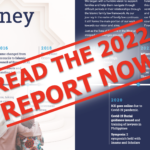by ICE – Islamic Finance Advisory and Consultancy
الحمد لله والصلاة والسلام على رسول الله وعلى آله وصحبه ومن تبعهم بإحسان إلى يوم الدين
All praise belongs to Allāh and may Allāh’s peace and blessings be upon His messenger, his family, companions and followers until the last day.
Standing members of the committee:
Shaykh Dr Haitham al-Haddad
Shaykh Dr Sajid Umar
Shaykh Fuad Abdo
Shaykh Dr Ali Ahmed
Umer Suleman
Executive Summary:
Muḍārabah is a non-binding contract in Islamic Finance that refers to a type of business partnership in which the Principal Owner/Investor [Rabb al-Māl] and the Entrepreneur [Muḍārib] agree to a profit-sharing investment/business venture. During the course of the contract, both profits and losses can be realised. Profits are shared according to a pre-agreed mechanism and proportion, while losses, if any, are endured by the Rabb al-Māl and the Muḍārib losing the applicable share of the expected profits, time and efforts.
Both parties to the contract will agree to the type of partnership; terms and conditions relating to capital, investment, and profit distribution.
Like all financial contracts, Muḍārabah contracts are governed by the principles of the prohibition of Riba, preventing deception and disputes and avoiding inflicting harm. Allāh says in the Qur’ān: “Indeed, Allāh orders justice and good conduct and giving [help] to relatives and forbids immorality and bad conduct and oppression. He admonishes you that perhaps you will be reminded.” (Sūrah al-Naḥl, 16:90)
The Messenger of Allāh (ﷺ) said: “There should be neither causing harm nor reciprocating harm.” (Sunan Ibn Mājah 2340)
Such principles seek to achieve the higher aims and objectives of the Sharī’ah; protection of wealth (Ḥifdh al-māl) through growth and prevention of loss. Allāh says in the Qur’ān:
“And do not consume one another’s wealth unjustly or send it [in bribery] to the rulers in order that [they might aid] you [to] consume a portion of the wealth of the people in sin, while you know [it is unlawful]” (Sūrah al-Baqarah, 2:188)
Types of Muḍārabah contracts:
There are two types of contracts that the parties to a Muḍārabah contract can agree to: i) restrictive and ii) unrestrictive. A restrictive contract is one in which a clear set of directives are defined and specified by the Principal Owner/Investor in order to “restrict” the executive boundaries of the Entrepreneur. Accordingly, due diligence and care must be taken by the Entrepreneur to honour the impositions set by the Principal Owner/Investor in order not to bring about any negative consequences to one or both the parties.
On the other hand, an unrestricted contract is one in which the Principal Owner/Investor grants the Entrepreneur an “unrestrictive” executive authority and mandate to pursue all for-profit trade activity that conforms to the interests of both parties in order for the objectives of the partnership being favourably realised.
By default, both types of contracts are non-binding and as such, both parties are able to dissolve the partnership unilaterally, except when dissolving the partnership leads to harm to any or both parties. Examples of such harms include: i) if the Entrepreneur has already commenced work relating to the management of the capital of the Principal Owner/Investor, or ii) both parties have already stipulated a specified expiry term.
Terms and conditions:
A Muḍārabah contract is entered into when there is an offer and acceptance between the Principal Owner/Investor and an Entrepreneur, both of whom are legally mature, of sound mental health, and known for maturely engaging in financial transactions. The contract must be expressed verbally, in writing or any other method which could be evidenced by appropriate documentation or record. All terms, liabilities, profit-sharing ratios and any other conditions must be stated clearly, leaving no room for ambiguity or uncertainty. The Principal Owner/Investor hands over the capital, which should be identifiable, readily available, accessible, and in the form of cash to the Entrepreneur in order to commence business activities.
Responsibilities and liabilities:
The Muḍārabah partnership is considered one of ‘trust’ and accordingly, the Entrepreneur is absolved from all liabilities in the event the business investment is unsuccessful, except in the event in which the contract is breached and there is proven misconduct/negligence on the part of the Entrepreneur, in which case the Entrepreneur will be liable to return the capital of the Muḍārabah and forfeit their rights to any profits accrued during the entrepreneurial venture. Examples of breach and misconduct/negligence include: buying/selling extensively above/below the known market rates; fraudulent accounting activity; taking on further investors without permission of the Principal Owner/Investor or in a manner which brings financial harm to investments made with his capital; investment in opportunities considered prohibited in Islam or through contractual agreement; and investing in areas beyond the scope of investment opportunities agreed to between the parties of the Muḍārabah contract, etc.
In order to avoid any conflict and negligence, both parties to a Muḍārabah partnership must ensure some of the following contractual areas are covered to avoid any future conflict and disputes: i) defining the remit of the Entrepreneur’s scope of operation (i.e. work, time commitment, authority to take loans, etc), ii) rules of engagement in relation to decision making, iii) the extent of the Muḍārabah partnership and the Entrepreneur owning multiple investable businesses, and iv) defining the timing upon when profits must be distributed and the Muḍārabah partnership dissolved.
Conclusion of the Muḍārabah partnership:
The Muḍārabah partnership can be concluded through various scenarios, some of which are: i) unilateral termination of the contract by one of the two parties, before the investment of the capital begins, ii) agreement by both parties to terminate the contract after investment of the capital has begun, iii) upon the date of dissolvent of the partnership being reached, iv) the capital being lost, or deemed insignificant in yielding any profit, or v) upon the death of the Entrepreneur.
Muḍārabah contractual dispute resolutions:
In the event there is disagreement or conflict between the Principal Owner/Investor and the Entrepreneur, and they are unable to resolve their dispute amicably, they should seek to resolve it through Islamic arbitration, mediation or adjudication by an authoritative Sharī’ah Council.
The Islamic Council of Europe (ICE) is able to undertake such cases. The conditions for ICE to act in the above capacities are: i) consent by all parties involved in the dispute, ii) free and exclusive jurisdiction granted to ICE by all parties, and iii) co-operation by all parties in settling the dispute.













